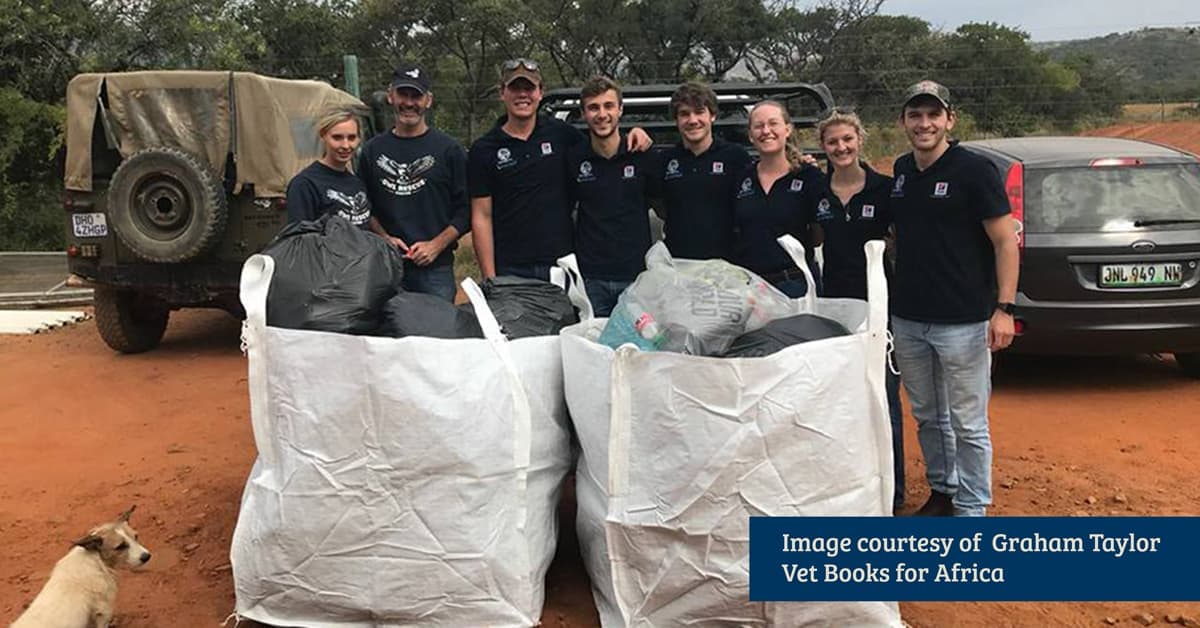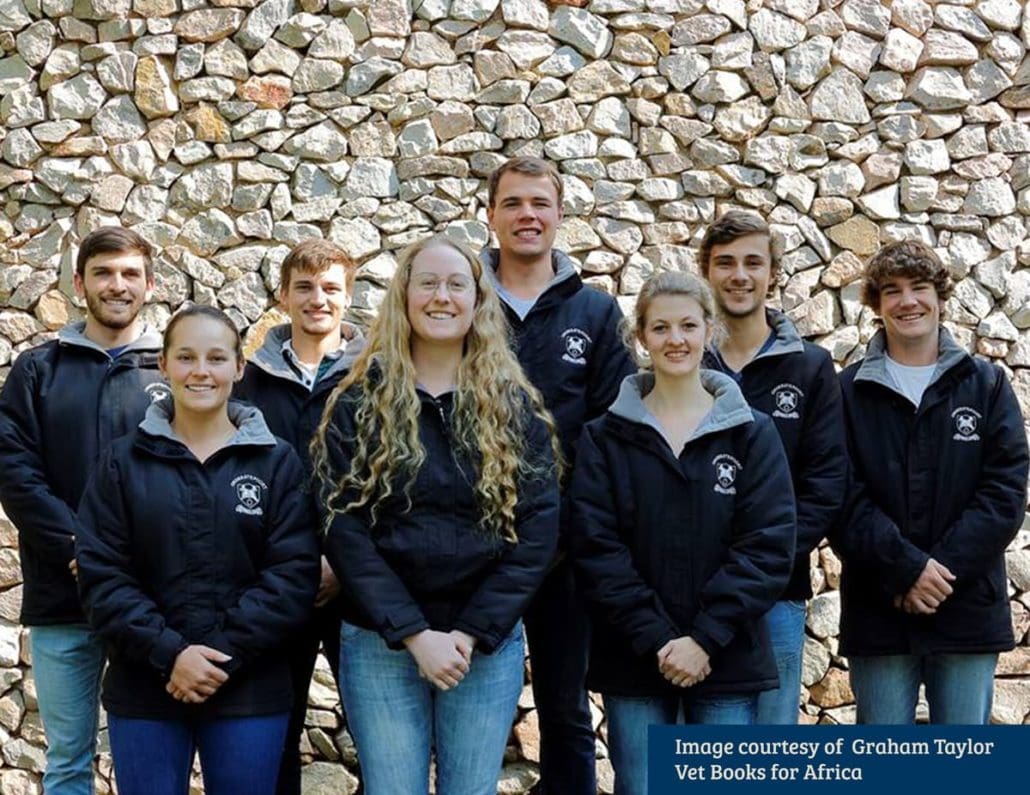Sharing is caring — the students of Vet Books for Africa
Knowledge is power. And for a small group of veterinary students of the University of Pretoria, this power is something they want to share to make a change in the world. JOCK spoke to Graham Taylor from Vet Books for Africa about their upcoming trip and how they are improving the lives of dogs and other animals.
Graham and his colleagues are in the middle of their end-of year exams in one of the most challenging University degrees around. Yet he makes time to talk to us about the reasons for starting this organization and goals of the tour to Zimbabwe, Zambia, Malawi, Kenya, Uganda and Tanzania — a tour which has been happening every two years since the first one in 1993.
“A lot of the countries we visit have a lack of resources and hence their educational experience is sometimes lacking. For example, in the faculty at Harare University, they only had one stethoscope available, whereas every student has one here at Onderstepoort.”
Recognising the disparities between the education they are fortunate to receive in South Africa and those of other African countries, Vet Books for Africa’s approach is not one of idle words. They choose to take a hands-on approach — one that has taken previous years’ groups thousands and thousands of kilometres on often dodgy roads to physically deliver text books and medical equipment.
This year, the group consists of Graham and 7 other students — Donavin Reynolds (chairperson), Wikus Weideman, Natasha van Tonder, Janco de Lange, Daisy Gidlow, Corme Randlehoff and Luke Michaelides — and will stop over at Harare and Nairobi Universities amongst other places.
Apart from engaging with fellow students and delivering the much-needed textbooks and equipment, the group will also visit several wildlife conservation and educational groups like the Consolata Secondary School in Tanzania.
The organisation’s long-term goals are to make a difference in animal conservation and ultimately, the way we as humans interact with our planet. The response from students in the countries visited and local communities has been overwhelmingly positive.
“We have been received very well and many of the previous committee members are always pleased to see the books and equipment still at the faculties we visit. They get excited when they open the books and see that they have been used,” says Taylor.
The students, at the start of their careers as veterinarians, are also very aware of the courageous and innovative ways in which students in other countries deal with the challenges of not having optimal resources.
“We can learn a lot about how these students find a way around a problem. It’s amazing to see how they are so passionate about helping and making a difference with what they have and we often forget how fortunate we are to have the facilities and equipment we have. As we will experience similar situations in our community service year, it will be good to see how you can deal with the situation,” says Taylor.
Wise words, from a group of bright young minds with their hearts in the right place.
To support Vet Books for Africa or donate educational books, visit their website http://vetbooksforafrica.org/ or follow their journey on Facebook or Instagram.

